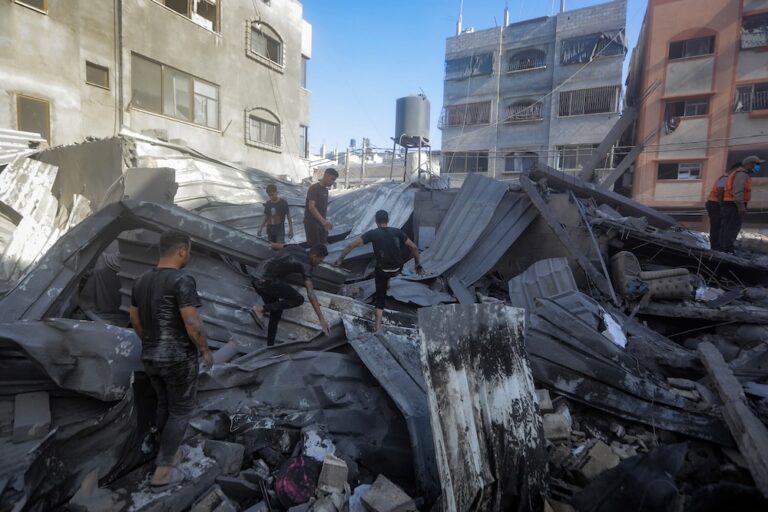(IFJ/IFEX) – The following is a 6 August 2001 IFJ media release: IFJ Warns of Palestine Press Freedom Crisis After Killing of Journalists The International Federation of Journalists, the world’s largest journalists’ organisation, today warned that independent media coverage of the Israeli-Palestinian conflict will become impossible if journalists continued to be among the targets of […]
(IFJ/IFEX) – The following is a 6 August 2001 IFJ media release:
IFJ Warns of Palestine Press Freedom Crisis After Killing of Journalists
The International Federation of Journalists, the world’s largest journalists’ organisation, today warned that independent media coverage of the Israeli-Palestinian conflict will become impossible if journalists continued to be among the targets of violence.
The IFJ is investigating the killing of two Palestinian journalists in the Israeli helicopter attack on a Hamas office in Nablus in the West Bank. “These deaths, when added to the list of almost 100 incidents of violence against journalists and media staff over the past months, present a horrifying picture of intolerable pressure,” said Aidan White, General Secretary of the IFJ, “free reporting will become impossible if it continues.”
The dead journalists are Mohammad Al Bishawi, aged 27, photographer for the local newspaper Al Haya, and Othman Abdel Qader Al Qatanani, a 24-year-old photographer for KONA News Agency. They died during an Israeli military strike on July 31st on a seven-floor apartment building. The Hamas office reportedly contained a media research center on the second floor.
“These killings bring home to journalists everywhere the terrible plight in which Palestinian journalists and others in the region find themselves,” said Aidan White. “Both sides in this conflict are trying to manipulate media coverage to suit their political interests, but there is no doubt at all that Palestinian journalists are suffering a disproportionate amount of discrimination and violence.”
According to the International Press Institute, of 102 violations of press freedom recorded up to July 24 this year, the Israelis perpetrated some 87 per cent. “There is little evidence yet of the Israeli authorities taking action against those responsible for these attacks,” said Aidan White. While the IFJ welcomed a statement by the Israeli Defence Force Chiefs last week that they would ask commanders on the ground to safeguard journalists, the Federation said it is not enough. “We have had many promises in the past, but the message does not appear to get through. It is time for the Israeli authorities to crack down on those who are attacking journalists.”


